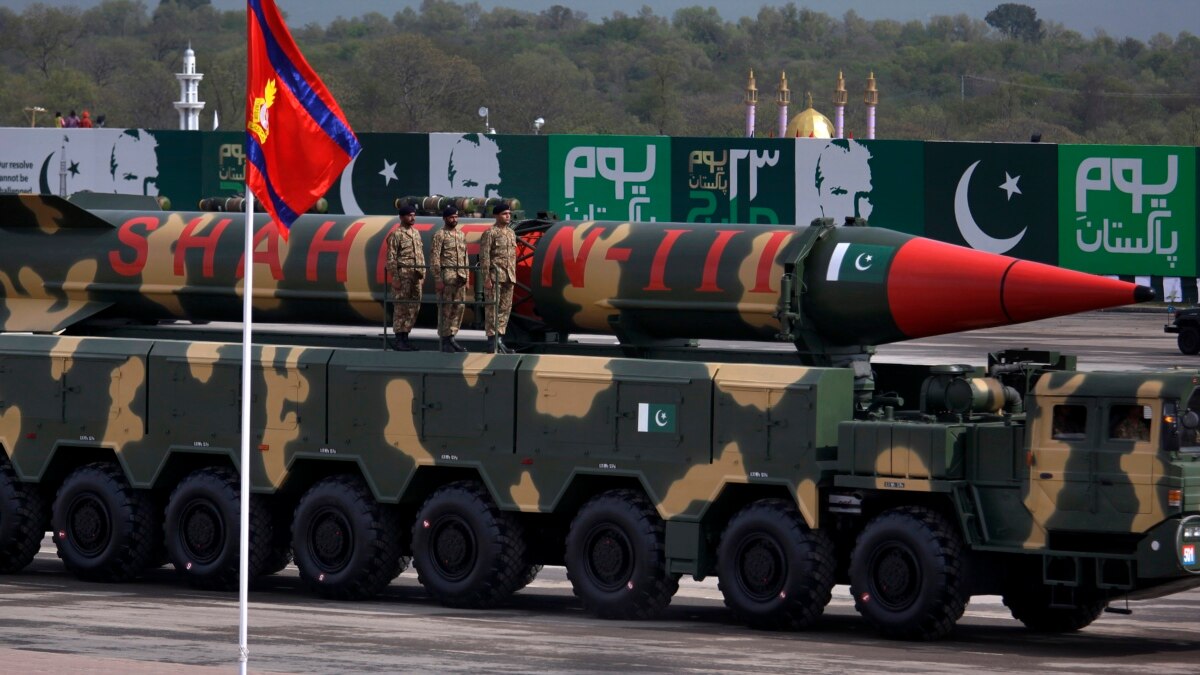US Imposes Sanctions on Pakistan’s Nuclear Program: Implications and Future Prospects
The United States has recently imposed additional sanctions on Pakistan’s nuclear program, a longstanding source of tension between the two countries. The sanctions were further aggravated by actions targeting Chinese companies believed to be involved in aiding Pakistan’s missile development efforts. Despite the sanctions, Pakistan maintains that its nuclear program is essential for its national security and plays a crucial role in maintaining the balance of power in the region.
A Complex Relationship
The relationship between Pakistan and the US has been fraught with challenges and changes since its inception. Both nations are entangled in a web of trust issues and shifting global dynamics. Over the years, American policy towards Pakistan has fluctuated, oscillating from viewing it as a critical ally during the Soviet invasion of Afghanistan in 1979 to labeling it a “global migraine.”
Political analysts and military experts agree that nothing has strained this relationship more than Pakistan’s nuclear ambitions. The recent sanctions against Chinese companies, allegedly involved in supplying missile technology to Pakistan, have reignited discussions about the two nations’ complicated ties.
Recent Sanctions and Their Implications
The US State Department, represented by spokesman Mathew Miller, announced sanctions against certain Chinese firms involved in procuring equipment necessary for testing motors for Pakistan’s Ababeel and Shaheen-3 missile systems. The US described these actions as “proliferation” and indicated that such activities would be met with strict consequences. In response, Pakistan’s foreign office has called for “truth-based evidence” to support these claims. Since 2021, the US has sanctioned Pakistani and Chinese entities six times, yet Pakistan continues to pursue its nuclear ambitions.
The Evolution of Pakistan’s Nuclear Program
Pakistan’s nuclear journey began under the leadership of former Prime Minister Zulfiqar Ali Bhutto. The events following the separation of East Pakistan were pivotal in the development of nuclear technology, with Bhutto urging the newly formed Pakistan Atomic Energy Commission (PAEC) to pursue nuclear capabilities for deterrence.
The program accelerated following India’s nuclear test in 1974, despite setbacks like France’s withdrawal from providing a reprocessing plant and US economic sanctions. Consequently, Pakistan shifted its focus from plutonium-based technology to a uranium centrifuge program led by Dr. Abdul Qadeer Khan.
The 1970s were a transformative decade for Pakistan, marked by political turmoil and external pressures. Despite these challenges, the country made significant strides, culminating in nuclear tests in May 1998, shortly after India conducted its own tests.
The Necessity of a Nuclear Arsenal
Geography plays a crucial role in Pakistan’s nuclear policy. Located between India and Afghanistan, Pakistan perceives its nuclear program as vital for its survival. Initially aimed at deterring India, the development of nuclear capabilities has since become central to Pakistan’s foreign policy.
Nuclear assets are now viewed as a top national priority. Pakistan emphasizes the concept of Minimum Credible Deterrence (MCD) to protect itself from perceived threats, asserting that it does not support nuclear proliferation.
Pakistan’s Role in the Muslim World
As the only Muslim-majority nation with nuclear weapons, Pakistan sees itself as a pivotal player in the Muslim world. The ongoing Israel-Palestine conflict, tensions in the Middle East, and concerns for the welfare of Muslims in various regions have prompted Pakistani leaders to contemplate enhancing their nuclear capabilities.
Grounded in Islamic principles, Pakistan seeks to position itself as a stabilizing force in the region, which contributes to its reluctance to abandon its nuclear ambitions in light of US sanctions.
The Broader Geopolitical Landscape
Recent US sanctions reflect the larger geopolitical struggle between the US and China. By targeting entities involved in Pakistan’s nuclear development, the US aims to curtail China’s influence in the region. Amid challenges such as the Russia-Ukraine crisis and internal issues, the US is cautious of allowing China to expand its power politically, militarily, and economically.
Implications for Israel
The US perceives Pakistan’s nuclear developments, particularly its missile capabilities, as a potential threat to Israel. The sanctions serve as a reminder of Pakistan’s obligation to the US, yet Islamabad remains resolute in continuing its nuclear pursuits.
Future Prospects for Pakistan
In recent years, Pakistan has shifted its foreign policy focus from a geo-strategic to a geo-economic approach, allowing for improved diplomatic relations and reduced dependence on the US. This shift has strengthened Pakistan’s resolve to continue its nuclear program.
To navigate the evolving regional landscape, Pakistan should aim for a stable and moderate government capable of maintaining constructive civil-military relations. A stable political environment can boost economic growth and attract foreign investment, essential for the nation’s long-term success.
Conclusion
Pakistan’s nuclear strategy is shaped by its unique geographic and political challenges. The country must balance international pressures with its security needs, as the nuclear program remains a top priority. While facing external sanctions, Pakistan must also address internal dynamics to ensure its continued stability and growth. Policymakers need to focus on internal issues while advancing the nation’s nuclear strategy, as internal threats often pose greater risks than external ones.

